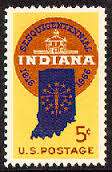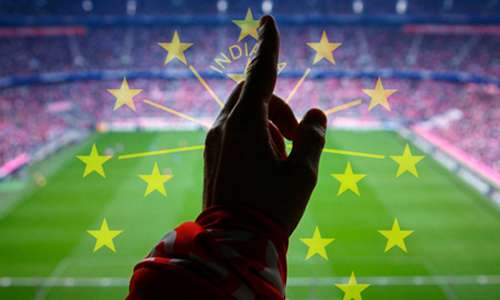Proposed Amendment Removes Integrity Fee from Indiana Sports Betting Bill
About a month ago, a bill was introduced in the Indiana House of Representatives that would legalize sports betting in the state should the activity become legalized on the federal level. The most interesting part about the news was that the National Basketball Association (NBA) and Major League Baseball (MLB) consulted with the bill’s sponsor, Representative Alan Morrison, and got something called an “integrity fee” added to the legislation. Wednesday night, ESPN’s gambling reporter, David Purdum, tweeted that an amendment has been proposed that would eliminate this integrity fee.
 Sports betting was made illegal in the United States in 1992 by the passage of the Professional and Amateur Sports Protection Act (PASPA). Some states were permitted to be grandfathered in and keep sports betting, but only Nevada, Montana, Oregon, and Delaware chose to do so (and Nevada is the only one with traditional, odds-based wagering). For the last few years, though, New Jersey has been fighting to be allowed to legalize sports betting, despite PASPA. The U.S. Supreme Court heard the state’s case last year and is expected to hand down its decision within the next few months.
Sports betting was made illegal in the United States in 1992 by the passage of the Professional and Amateur Sports Protection Act (PASPA). Some states were permitted to be grandfathered in and keep sports betting, but only Nevada, Montana, Oregon, and Delaware chose to do so (and Nevada is the only one with traditional, odds-based wagering). For the last few years, though, New Jersey has been fighting to be allowed to legalize sports betting, despite PASPA. The U.S. Supreme Court heard the state’s case last year and is expected to hand down its decision within the next few months.
The professional sports leagues in the U.S. – as well as the NCAA – have been New Jersey on the matter, claiming that sports betting would “hurt the integrity of the games,” even though they really know full well that sports betting dramatically increases interest in their sports. One major sign that the Supreme Court is expected to rule in favor of New Jersey and open up all states to legalize sports wagering is that the NBA and MLB have been lobbying on sports betting legislation in six states already: Indiana, New York, Missouri, West Virginia, Iowa, and Kansas.
They know that they need to get out in front of things and have their voices heard before bills are written. If they thought the Supreme Court would uphold PASPA, they wouldn’t be coordinating with lawmakers.
And so we get to the integrity fee in Indiana. MLB and NBA, not content to see solid regulations for sports betting, which would increase interest and viewership of their sports, decided they deserved an actual piece of the revenue pie. A such, they got Rep. Morrison to insert the integrity fee into the bill, which would require sports betting operators to pay the leagues 1 percent of “the amount wagered on the sport’s governing body’s events.”
That’s a 1 percent on every bet placed, regardless of whether it wins or loses. Professor I. Nelson Rose, the leading expert on gaming law, explained on his blog why this is terrible. Using recent historical figures for Nevada sports books, Rose estimated that the average sports book would bring in $25 million in bets and make 4.16 percent on them for a $1.04 million profit. The integrity fee would be $250,000 ($25 million x 1 percent), scooping a full 25 percent of the sports book’s profits right off the top. After the state’s gaming tax and federal gaming tax, the profit is down to $631,300. And that’s BEFORE all other expenses like state and federal income tax, salaries, insurance, utilities, and so on and so forth. The integrity fee would kill sports books.
The amendment Purdum tweeted is only proposed, so there is no text available to the public, but it apparently nixes the integrity fee. Perhaps Rep. Morrison and the leagues heard the outrage.
That doesn’t mean that the NBA and MLB are content to receive no extra money from sports betting, though. Replacing the integrity fee would be a requirement that sports books acquire the statistical data used to grade wagers (grading just means determining which bets win and lose) directly from the leagues. This, of course, would mean that the operators would be paying the leagues for the use of that data, so the leagues would still make money. Purdum believes that going this route could actually be more financially advantageous for the leagues than the integrity fee, depending on how the terms were laid out.
Another part of the proposed amendment to HB 1325 is that the leagues would have final say on what types of wagers are allowed. One might assume that there wouldn’t be TOO much that the leagues would balk at, but there could be some types of prop bets that the leagues could frown upon as having more potential to result in funny business, the old “hurt the integrity of the game” boogeyman.
As mentioned the Supreme Court’s decision on the New Jersey case is expected within the next few months, though ESPN.com reported Wednesday that the ruling could be handed down as early as March.

















COMMENTS